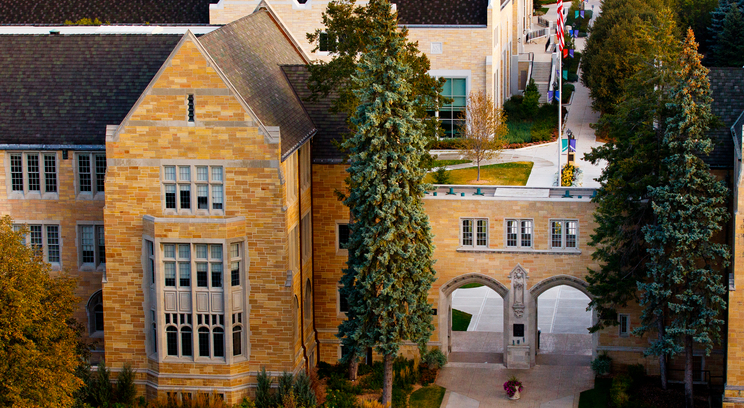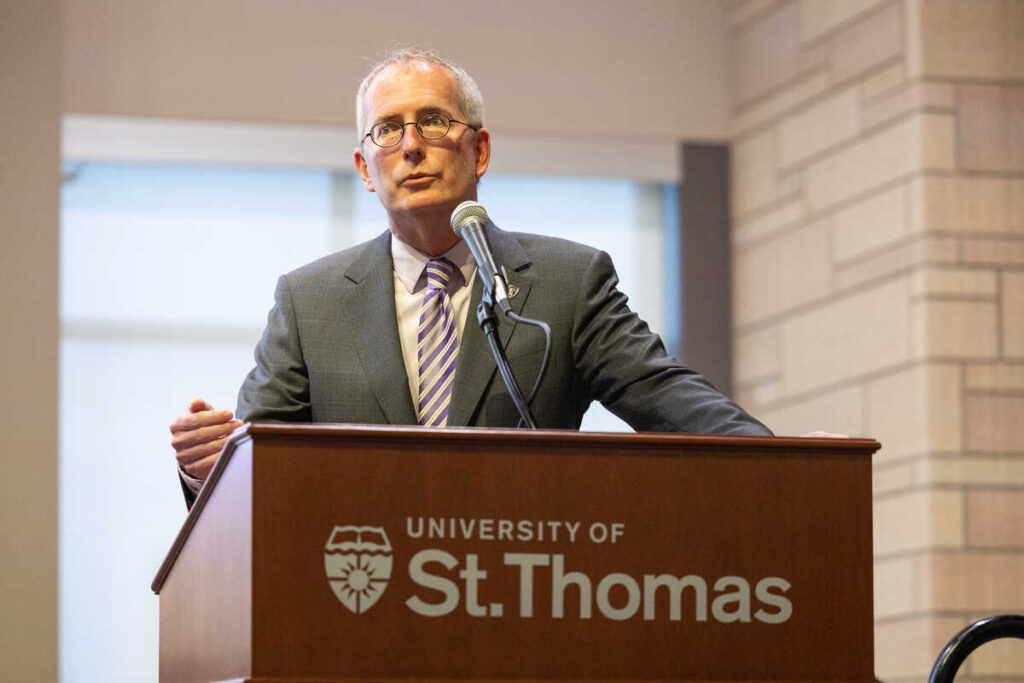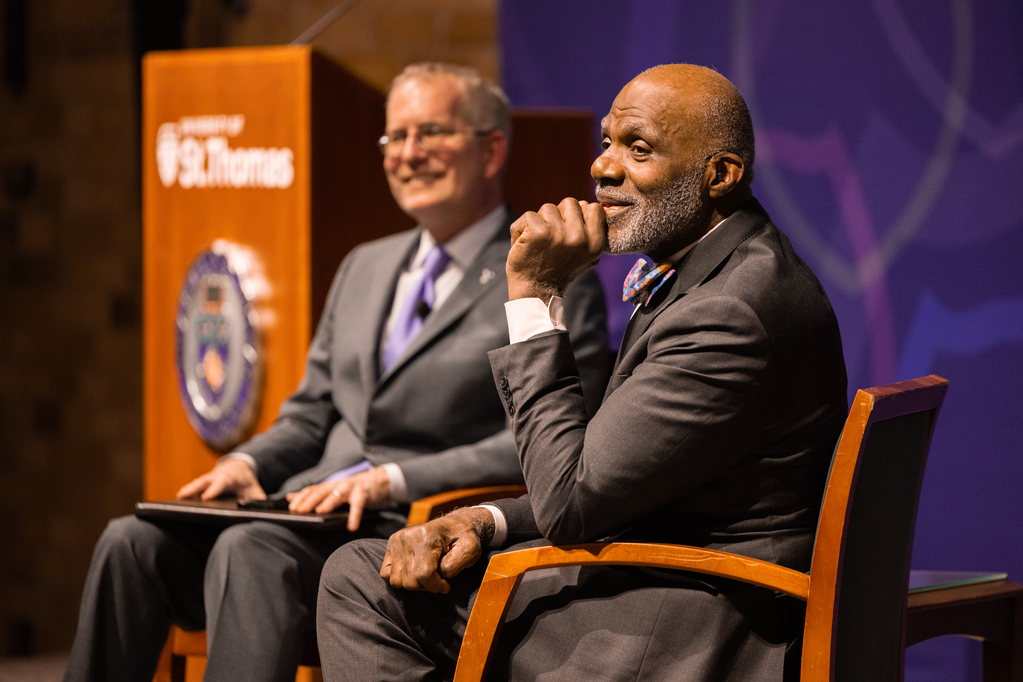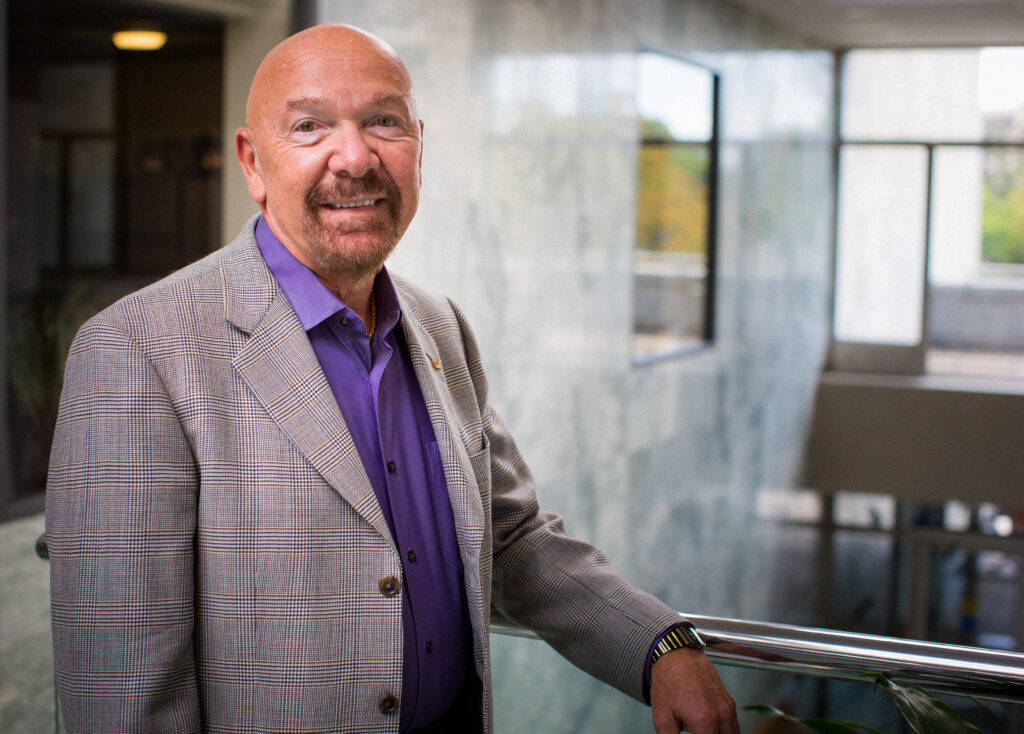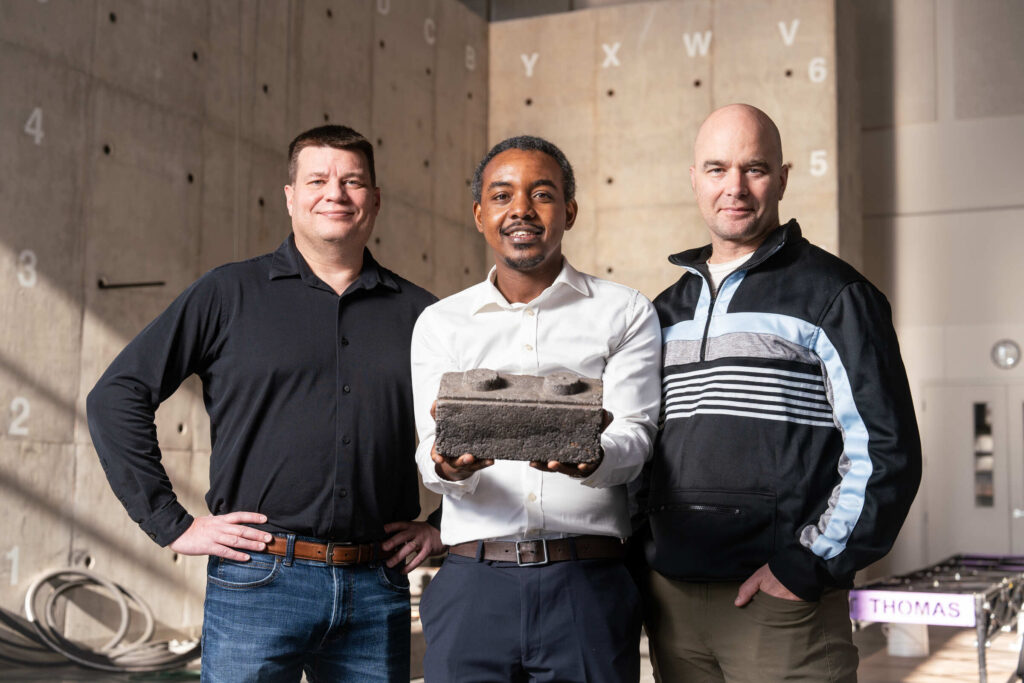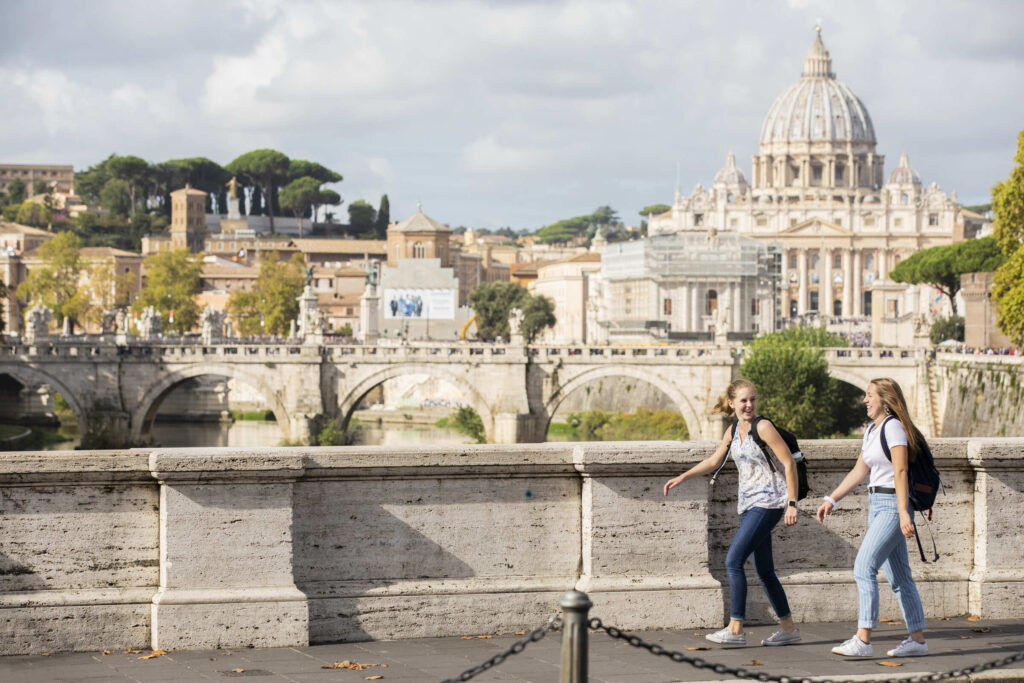War and Peace it may not be, but the St. Thomas community responded to a presidential planning survey with a fervor that even Leo Tolstoy would have appreciated.
Some 3,142 faculty, staff and students took time last spring to respond to the online survey, which Dr. Julie Sullivan commissioned after her election as president in February.
And they wrote 446,000 words – or 80 percent the length of the famous Russian novel, according to Dr. Michael Cogan, associate vice president for records and institutional effectiveness. Eighty-four percent of full-time faculty responded to the survey, followed by staff (75 percent), adjunct faculty (36 percent), undergraduate students (24 percent) and graduate students (20 percent).
Sentiments among the groups are similar, Sullivan told the Academic Convocation Tuesday in her first public speech since taking office July 1. Members of the community are proud of its academic excellence, committed to its Catholic identity and mission, and consider themselves a family.
“These are astounding numbers,” Sullivan said, “and they tell me two things: you are engaged and truly care about the future of this university, and you want to be a part of creating that future,” she said. “As an academic community of almost 12,000 individuals, I have been amazed at the strong consensus – which is not exactly what academic communities are known for – and the power this gives us to move forward together.”
The planning survey results won’t gather much dust. Sullivan intends to use them during a strategic planning process which will kick off this fall. The results also will be the focus of a brown-bag lunch discussion that she and Cogan will lead on Monday, Sept. 9, in Woulfe Alumni Hall.
Sullivan wanted to keep the survey short and simple, and asked only three questions:
- What does our community view as the most important strengths that distinguish St. Thomas?
- What new initiatives or opportunities would you like to pursue over the next five years?
- If you could change one thing about St. Thomas, what would it be, and why?
Here is what Sullivan gathered from reading those 446,000 words:
Academic excellence
“Hands down, the No. 1 thing I hear and read is your pride in our academic and educational excellence,” she told faculty who filled the main floor of the O’Shaughnessy Educational Center auditorium. “Faculty, staff and students uniformly agree the world-class quality of our faculty and the learning experiences you provide are our greatest strength. You are described as ‘committed,’ ‘dedicated,’ ‘engaged,’ ‘talented,’ ‘caring,’ and ‘passionate.’ Students speak gratefully about your accessibility and the personal relationships they develop with you.”
Survey results highlighted strengths such as a commitment to the liberal arts and their integration with professional education, small class sizes, quality teaching and the growth and quality of faculty-student research projects. St. Thomas enjoys a strong regional reputation for academic excellence, and respondents want to build a stronger national and international profile.
Sullivan pointed out a desire for a stronger and clearer academic vision and the need for the academic mission “to occupy the central role in our planning and decision-making.” Consequently, she has reorganized her senior administration consistent with a “provost’s model” under Dr. Susan Huber, with an initial phase having the Student Affairs and Information Resources and Technology divisions report to Huber. Sullivan also has created a 20-person President’s Cabinet, which includes Huber, vice presidents, academic deans and other campus leaders.
Survey respondents also encouraged greater diversity and inclusiveness, which they believe would enrich learning experiences. “Students want and need to learn side by side with students from all facets of life, knowing that this increasingly will be the case in their personal and professional lives,” Sullivan said. “Students value difference and recognize the enhanced understanding that occurs when different backgrounds, lenses, and perspectives are brought to the discussion.”
As for changes, constituents called for a “refreshed” curriculum and more multidisciplinary programs connected with experiential learning that takes advantage of St. Thomas’ location in a Twin Cities area with strong healthcare, energy and food sectors as well as social service, religious, arts and cultural organizations. Respondents also are interested in more alternative forms of delivery, including hybrid and online courses, especially in graduate programs.
Catholic Identity and Mission
The integration of Catholic identity throughout the institution is viewed as another strength, particularly as it relates to social justice initiatives “and our pursuit of the integration of faith and reason,” Sullivan said. Survey respondents resonate strongly with St. Thomas’ mission statement and its emphasis on educating “morally responsible leaders . . . to advance the common good.”
Many people see further opportunities for St. Thomas to deepen its Catholic identity and mission. There were few specific suggestions in survey results on how to accomplish this, however, and Sullivan offered three areas that might be explored:
- Curriculum. Are there opportunities to better articulate the relevance and value of required theology and philosophy courses, while continuing to explicitly link them to courses in other disciplines? Are there further opportunities for other disciplines, where appropriate, to connect to Catholic intellectual tradition and the principles of Catholic social thought?
- Respect for the dignity of every human person as created in God’s image. Last spring’s climate survey indicated progress in this area compared with a 2007 climate survey, but Sullivan noted that St. Thomas has “very high” standards in expecting that “every person in our community feels welcomed and included.” Survey respondents said there could be a more welcoming and supportive attitude toward lesbian, gay, bisexual and transgender persons. “It pains me to think that a gay student, staff or faculty member would ever feel unwelcome or a need to ‘hide’ at St. Thomas,” Sullivan said. “As Pope Francis reminds us, we are not called to judge. We are called to love and support everyone in our community regardless of their sexual orientation and, I will add, regardless of the gender of their spouse.” Those comments drew a prolonged ovation from the OEC audience.
- Commitment to social justice, solidarity, and advancing the common good. “Are we providing our students the learning experiences and the skills, attitudes, and spiritual commitment to make the greatest difference in our world?” she asked. “What more can we do to develop our students’ empathy, mindfulness, self-reflection, comfort with ambiguity, imagination and optimism?”
Organizational Culture
Survey respondents frequently cited a “collegial, warm and family-like” atmosphere. “It is evident that people here love St. Thomas, care about one another, and demonstrate their care – and you should be proud of that,” Sullivan said.
But as St. Thomas evolved into a comprehensive university with seven graduate colleges and schools and separate academic and administrative structures, “silos” developed, the survey found. Sullivan wants to eliminate the silos “and strengthen the culture of one university, one family and one mission,” she said, with a goal of always furthering the “fundamental mission of learning and discovery.”
To do so, respondents said, there is a need for more frequent and open communication, “starting with me,” she said, as issues are considered and decisions are made. They also asked for a reinvigoration of what she called “our bold, entrepreneurial, and risk-taking spirit,” and she embraces that.
“You don’t want to offer an idea,” she said, “and hear in response, ‘We have never done it that way before,” or “We always do it this way.” I can assure you that you will never hear these responses from me. For one reason, I wouldn’t know if we have or haven’t always done it this or that way.” She also said she would not act hastily and without fully understanding issues: “I believe in the old adage, ‘You should never tear down a wall before you understand why it was built.’ ”
Sullivan said as we begin to chart the path for our journey together that we first need to articulate our guiding star – “our vision” – and she will work with the community “to further develop and articulate that vision,” set goals and identify specific initiatives during the strategic planning process.
“So, as I close this afternoon,” she concluded, “let me say the journey has begun, and I commit to you that it will be an exciting and fulfilling journey."
